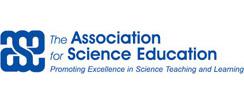- View more resources from this publisher
 Association for Science Education (ASE)
Association for Science Education (ASE)
The use of P-scales in science
This article, by L. Chapman, published in June 2002, presents a small-scale case study of science assessment for students with special educational needs. The discussion is based on the appropriateness of the assessments as a means of monitoring achievement and in setting targets. It is argued that National Curriculum levels do not provide an accurate picture of progression and attainment or aid target-setting for many of these children, as they do not show progress within levels.
Performance criteria, or ‘P-scales’, published by the Qualifications and Curriculum Authority for literacy, numeracy and social development, which provide a means of splitting NC levels into smaller steps, are here applied to the outcomes of ‘investigative’ work in science. The issues involved in applying the P-scales in this context are considered, and modified versions proposed and applied to the students’ work. It is argued that the amended scale provides enhanced support for identifying and monitoring achievement of the pupils. The study concludes by looking at the use of P-scales in science for annual reviews and target-setting.
This article was published in School Science Review, June 2002.
Show health and safety information
Please be aware that resources have been published on the website in the form that they were originally supplied. This means that procedures reflect general practice and standards applicable at the time resources were produced and cannot be assumed to be acceptable today. Website users are fully responsible for ensuring that any activity, including practical work, which they carry out is in accordance with current regulations related to health and safety and that an appropriate risk assessment has been carried out.
Downloads
-
Use of p-scales 710.07 KB





